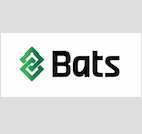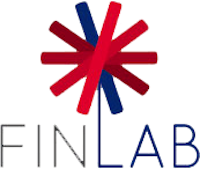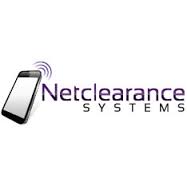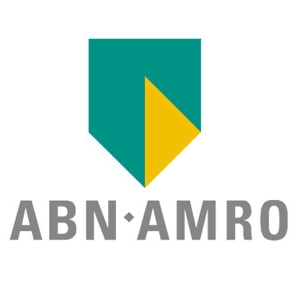Published
- 05:00 am

The emerging cryptocurrency created by UK based BitConnect, BitConnect Coin (BCC) has registered a phenomenal growth since its inception six months ago by outperforming the growth of the world's top altcoin, Ethereum. The new cryptocurrency has witnessed its value increase dramatically since its November 2016 ICO. From the initial market value of $1.84, BCC has reached a price point of over $52.65 by June 10, 2017.
Ethereum, after its launch on August 10, 2015, commanded a value of $1.71. Six months later, the value of ether had risen by a few dollars to stand at $11.53 by March 28, 2016. A comparison of both the cryptocurrencies shows that BitConnect Coin has achieved a much higher growth rate than most of its counterparts in the recent times — a record 1800 percent rise in value over last month. During the initial months, BCC's growth and community consensus drew comparisons to Bitcoin, but more recently, the cryptocurrency has seen a sharp rise in value, which resembles more closely to the most recent rise of Ether.
Although Ether has witnessed a 2000 percent rise in value since the beginning of 2017, it hasn't always seen such an impressive growth. In the first six months following Ethereum ICO, the ether token saw a steady rise in value, in tune of around 700 percent, whereas BitConnect Coin saw a 3000 percent rise in its value since first hitting the market and over 10,000 percent increase from its ICO price.
Similar to Bitcoin, the total number of BCC is capped at 28 million units. It is a deflationary currency, with the demand sustaining its present high growth rate. As BitConnect Coin continues to witness continued growth, the trend closely follows the company's previously announced records in value and market capitalization during Q1 2017.
Unlike many other cryptocurrencies, BitConnect Coin doesn't require centralized exchange platforms. It can be traded directly between community members, which makes selling and buying the cryptocurrency much easier than some of its competitors.
If BitConnect Coin continues to grow at the current rate, it will quickly turn out to be one of the best cryptocurrency investments of 2017, alongside the likes of Bitcoin, Ethereum, and Ripple.
Related News
- 07:00 am

Trax®, a subsidiary of MarketAxess Holdings, Inc. and a leading provider of regulatory reporting, trade matching and capital market data services, and Bats Europe, a CBOE Holdings, Inc. company and the region’s largest equities exchange operator, today announce plans to offer Trax Approved Publication Arrangement (APA) customers the choice to direct equity trade reports to the Bats APA in order to help market participants comply with MiFID II post-trade transparency obligations.
Geoffroy Vander Linden, Head of Transparency Solutions, Trax, comments, “Trax has worked extensively with the regulators and our buy- and sell-side client community to build a comprehensive and intelligent transparency solution. It’s through this cross-industry collaboration that Trax and Bats Europe will develop a connection for equities trade reporting. I’m excited to be able to offer our buy- and sell-side clients even greater technical flexibility and a streamlined operational solution.”
Jerry Avenell, Co-Head of Sales at Bats Europe said, “Market participants are looking for simple solutions to meet the new trade reporting requirements coming under MiFID II. By collaborating with Trax to provide their customers with streamlined access to the Bats APA for their equity reporting needs, we’re making it easier for firms to meet their regulatory requirements.”
The Trax Transparency Solution, which includes the APA, is available through the Trax Insight™ platform, offering a comprehensive cross-asset class pre- and post-trade transparency solution including quote publication, Systematic Internaliser (SI) determination, reference data reporting to multiple National Competent Authorities and Best Execution reporting. Trax Insight will have the ability to facilitate a firm’s complete cross-asset class transaction flow as both an APA and a MiFID I and MiFID II Approved Reporting Mechanism (ARM) for transaction reporting, ensuring trades are enriched with relevant data, validated for reporting eligibility and reported in near real-time. Trax also offers firms the ability to complete necessary validation checks and test their MiFID II reporting readiness ahead of the January 2018 implementation deadline via the Insight platform. Trax supports flexible integration through multiple communication channels and message formats with links to various OMS systems.
Related News
- 04:00 am

After sieving through close to 400 applications across 44 countries, The FinLab, Singapore's first corporate fintech accelerator, selected 8 innovative fintech businesses for its second cycle of acceleration.
The FinLab is the only accelerator that had 3 fintech businesses from our 1st cohort receiving recognition at last November's Singapore Fintech Festival. Attores and Turnkey Lender were nominated in the MAS Fintech Awards, with Turnkey Lender winning 2nd prize, and CardUp was selected as 1 of 19 teams from 655 global submissions to be part of the Global Fintech Hackcelerator.
Just recently, Attores, a business that focuses on developing and deploying smart contracts, announced a Proof-of-Concept with Ngee Ann Polytechnic, an Institute of Higher Learning, to publish students’ education certificates on the blockchain.
For The FinLab's 2nd cycle, the startups again boasts complementary approaches to disruption and innovation: from areas of financial inclusion and capital markets, to bringing convenience to users and enhancing compliance in finance.
Financial Inclusion
The HelloGold mobile app lets customers buy physical gold with as little as RM1 and then pledge the gold as collateral to borrow at lower rates. It solves the problem for those who want to save in gold but can't afford it, and for those who want to borrow money but don't have the right credit score.
And just as traditional gold investing is given an innovation boost, Quber leverages on technology to provide smart financial management tools. Engagement is the cornerstone here, and through this, Quber aims to help impart and ingrain financial literacy for all who use their platform.
Convenience to Users
Introducing convenience to daily consumer transactions is Aimazing, one of the winners of the MAS Fintech Awards 2016. Aimazing enables platform agnostic contactless mobile transactions with their patent-pending Soundwave Data Communications Technology.
With the prevalence of social chats, PayKey enable bank users to securely make P2P payments within any social network and messaging application, through a payment keyboard which is integrated with the bank’s mobile app.
Capital Markets
Bonds is the only asset class that has not moved to fully leverage the use of technology like FX and stocks have. BondLinc aims to bring transparency and efficiency to bonds trading for institutions, relationship managers, traders and clients.
TransFICC, on the other hand, alleviates the pain faced by banks when having to integrate with multiple fixed income eTrading venues, by introducing a low latency, robust and scalable consolidated
API. TransFICC's one API for eTrading connects to them all.
Compliance
The advent of increased technology use is coupled with an increasing need for compliance especially in the financial industry. To reduce fraudulent activities in business workflows, Tookitaki provides a machine learning platform designed for banks and financial institutions. They bagged the first prize for the Singapore SME category at the MAS Fintech Awards 2016.
Last but not least, Chynge is a RegTech that uses an AI.Compliance.bot to ensure that cross border payments are compliant, safe, transparent and fast for all parties involved in each transaction.
The FinLab continues to support and groom our portfolio companies, past and present.
Related News
- 01:00 am

Netclearance, providers of the world’s biggest network of smart Bluetooth payment terminals, today unveils the world’s first commercially available Bluetooth 5 payment beacon.
The device brings three key benefits to merchants and financial institutions:
1. Upgrades existing payment terminals by adding IoT features. The device allows terminals to accept payments from mobile-wallets in apps. It functions outside of NFC technology used by Apple, Samsung and Google wallets
2. Adds proximity marketing capabilities. It acts as a beacon which brings all the benefits of in-store proximity marketing with Apple iBeacon and Google Eddystone-compatible technology
3. The technology is future-proof. Being the first commercial Bluetooth 5 payment beacon with a built-in secure element, it offers bank-grade security with the additional capability of over-the-air firmware upgrades. Bluetooth 5 offers better range, lower power and faster speeds, but it is fully backwards compatible with previous generations
mBeaconSAM is designed to meet the growing demand from merchants and financial institutions looking for alternative revenue streams from API-based mobile payments that use open wallets, outside of existing walled gardens. This democratisation of mobile wallets means that any app can include a wallet which could be used for any payment. This is in line with the upcoming Payment Services Directive, PSD2, which looks to create an equal playing field for payment service providers.
mBeaconSAM upgrades existing payment terminals to accept payments from smartphones or wearable devices using Bluetooth Low Energy (BLE) technology. It is not limited by existing card-based NFC technology, enabling payments to be quickly made on iOS, Android and other Bluetooth devices.
Jonathan Duffy, EMEA executive director at Netclearance says “Merchants are using tens of millions of payment terminals around the world but the vast majority of these terminals are limited to card-based NFC technology that only works with the closed mobile wallets from Apple, Google and Samsung. mBeaconSAM has been developed to fill a void in the mobile payments and engagement infrastructure. It enables open app-based payments using Bluetooth.
“Mobile payments are both attractive and safe for consumers and have the power to revolutionise the purchasing experience. For merchants and financial institutions, it potentially opens up new streams of revenue.
“It’s really exciting to bring the first Bluetooth 5 payment and proximity marketing beacon to market, and adoption of the latest technology will ensure mBeaconSAM is supported for years to come.”
Based on appearance, the smart card looks and feels like a mini-SIM card. However, under the hood, the smart card contains a high-speed processor, crypto-engine, secure memory and BLE 5.0 capabilities that interface with the terminals readers via the standard PSAM interface. It performs a variety of functions including access control, mobile payments acceptance, mobile proximity marketing, workforce management and secure customer identity verification.
mBeaconSAM joins the Netclearance’s leading portfolio of BLE based payment terminals, unattended payment and mobile ticketing solutions widely used in Scandinavia and other regions. All Netclearance solutions utilise low-power wireless technology and feature open APIs, mobile SDKs, and advanced analytics capabilities.
Related News
- 01:00 am

Chase customers now have broader access to an easy, safe and fast way to pay other individuals through the ZelleSM network.
“A growing number of customers are choosing Chase because they like our online and mobile capabilities,” said Bill Wallace, Head of Chase Digital Banking. “Consumers want a safe and fast way to make payments and Chase QuickPay with Zelle offers them the ability to pay each other in a simple and consistent way.”
Chase customers sent more than $28 billion person-to-person transactions through Chase QuickPay in 2016, representing 38% growth over 2015. QuickPay with Zelle allows payments to be sent and received with each other by simply using the recipient’s mobile phone number or email address. Funds sent via Chase QuickPay with Zelle are typically available within minutes.
“By connecting with an additional dozen plus financial institutions, we expect more people will want to pay the dog walker or share the dinner bill seamlessly using QuickPay with Zelle,” added Wallace.
Chase QuickPay with Zelle customers will continue to have the ability to:
Send same day or schedule future dated payments
Request money and directly respond to payment requests
Easily manage and track payments and requests
Add recipients directly from their phone contacts list
Related News
- 06:00 am

Fraud and risk management experts, The ai Corporation (ai), has developed a suite of self-service machine-learning products that enable banks to directly fight growing ACH fraud.
SmartScore®, one of six products within ai’s SmartSuite, creates neural models using artificial intelligence and automated machine-learning techniques, to recognise patterns and trends in fraud. Providing transaction risk scores to be used in conjunction with user-defined rules and parameter-mapping.
“ai is tirelessly working on ways to facilitate and protect both faster payments and alternative payments by providing our clients with self-service SaaS or software solutions that automate manual processes and allow the fraud teams to focus on more important business problems.” Mark Goldspink, CEO, ai.
With its unique multi model capabilities, SmartScore® enables users to create Neural Models specific to a particular fraud type, customer segment or payment method, including ACH. By constantly refreshing the data available, SmartScore® provides an up to date and accurate risk score based on current trends, ensuring that RiskNet® or any third-party fraud platform users are not reviewing unnecessary alerts.
About ACH Payments
As of September, last year (2016), credit-based ACH payments are now being settled within the same day. This includes direct deposit, payroll, person-to-person and vendor payments. This year, 2017, ACH debit-based payments will follow suit.
Same-day credit-based ACH payments create significant fraud exposure and criminals are leveraging, this will increase exponentially when same-day debit-based payments are brought in. Instead of having two to five days to detect fraudulent transactions institutions will be faced with as little as two hours to analyse suspicious activity.
Financial institutions need to change their processes and risk strategy to tackle this new fraud risk and to prepare for future increased fraud risk. ai has created ACH specific neural models that combat this growing problem within financial institutions.
ai’s advanced data visualisation tools bring the data to life allowing for a granular level of interrogation, highlighting potential risks hidden in large amounts of data. Their network visualisation technology identifies commonalities and consolidate ongoing investigations.
Utilising ai’s suite of self service, automated, and highly scalable products in a SaaS environment, provides a proven multi layered preventative solution to ACH fraud for your business.
Southampton University and Leuven University partnership
As part of their ongoing fight against payment fraud, ai has partnered with two leading universities, Southampton University and Leuven University in Belgium, to form a Research Council to investigate the benefits of using true machine deep learning in fraud prevention. The Council’s research will further strengthen ai’s position at the forefront of the payments industry.
Tom Myles, Chair of the Research Council and CTO at ai says: “One of the team’s focuses will be the adoption of true machine deep learning. This is the movement away from supervised to an unsupervised self-learning system, with the purpose of fully automating fraud prevention activities for all payment types.”
Related News
- 08:00 am

BlueRock Wealth Management Inc., a trusted wealth management firm that provides personalized financial advice and services, has announced that it is offering FutureVault’s Digital Collaborative Vault – called the BlueRock Vault – as an exclusive service to its executive and high-net-worth clients.
“While the transition to digital documents has made sharing documents infinitely easier, managing disparate accounts in a secure fashion has become laborious. How many times have you gone hunting for an email attachment or important document?” said Neal Owen, President, BlueRock Wealth Management. “What BlueRock is now offering, using FutureVault’s platform, is a one-stop destination that acts as an intelligent filing cabinet for all of our clients’ important financial, legal and personal documents. The professional, secure and diligent management of our clients’ assets is our top priority - now, we’re helping protect our clients’ information with the same steadfast approach as their assets.”
The BlueRock Vault will be available to select members via the BlueRock Wealth Management site. Members can access their important information at any given time. Additional key features include bank-grade security and privacy, optical character recognition (OCR) with smart-filing technology, pre-configured digital filing cabinet with a flexible infrastructure for folders, documents and document forms.
“Executives and high-net-worth families have unique needs when it comes to document storage and management. With our highly structured taxonomy, ease of use, and our Trusted Advisor functionality, BlueRock clients now have access to a platform that will forever change the way they do business,” said G Scott Paterson, Executive Chairman, FutureVault. “The BlueRock Vault will become an indispensable tool that will save clients not only time, but will provide peace of mind that all of their documents are organized, secure and easily accessible at all times.”
Related News
- 02:00 am

Today, Circle customers in the US, UK and Europe now have the ability to send and receive money instantly across borders with no fees and no markup on foreign exchange rates.
Other news we’re sharing today includes:
More information about Circle in Europe
New features that simplify using Circle with friends
How Circle is using crypto assets and blockchain technology to make this simplification possible
New details about Spark, technology that will help connect consumer payments globally in the same way that email and SMS connect people’s communications
New details about services we’re working on that will ultimately help people access credit and make use of their savings in more effective ways
Announcing no fee and no FX markup on cross currency p2p payments
People around the world have benefited from the ability to share and discover content and communicate freely over the internet. The benefits to humanity of this ability to communicate quickly, without charge and instantly is really hard to even quantify. Today, we’re bringing this same model to payments.
No one will ever have to pay fees or foreign exchange markups on payments sent to or from the US, UK and more than a dozen European countries. Payments can now be sent between US dollars, British pound sterling or euros instantly and there are no fees at all and zero FX markup on exchange rates if sent using Circle.
Whether paying back a friend or family member, sending some funds to your child or family member overseas, or chipping in for a trip - sending funds in the US, UK or Europe now works the same as sharing a photo, text message or email. Funds are sent for free and arrive instantly.
This is a significant new benefit for Circle customers. It also represents a disruption to the entire consumer cross-border payment market. Prices and profit margins for payments are collapsing to zero, in the same way that the price of communications and information publishing collapsed to zero in the first phases of the internet.
Understandably, people will be asking how Circle can make this possible. How can a business afford to remove any fees for sending money around the world? More on that below.
European growth momentum
Circle continues to rollout in Europe with significant growth in the past year. Circle’s overall growth rate in customers year over year has been over 1000%, and our payments volume growth rate in Europe since January has been over 500%. In 2017 in the UK, Circle’s average monthly social payments growth rate has been over 50%. Circle handled over $1B in transaction volume in 2016.
Most Circle European customers are millennials (90% are below 35 years old and 60% are below 25 years old) and they use the product for many of their day-to-day person to person payments such as splitting the cost of a meal, sharing rent and its associated expenses, and reimbursing for a gift.
Circle is officially launched in the US, UK, Spain and Ireland, and is also available in early access release in 15 other markets (Germany, France, Italy, Netherlands, Finland, Slovenia, Slovakia, Estonia, Austria, Portugal, Poland, Luxembourg, Czech Republic, Croatia, Liechtenstein).
Product updates
We’ve also introduced a range of product updates that ease how customers can get started, share and use Circle with friends, make larger payments, and receive money faster.
Customers can now receive payments into their bank accounts even faster through the introduction of near-instant withdrawals in the UK via Faster Payments to UK bank accounts, and same day withdrawals into most European bank accounts via SEPA withdrawals.
Customers can now sign up and use Circle in seconds using a Facebook account. We’ve also made it easier to find friends who are already using Circle, including friends in your mobile contacts and Facebook friends.
Customers wanting to send larger payments (thousands of pounds, euro or dollars) can now more easily do so without significant delays, with instant upgrades to higher limits for most customers, and once again, with zero fees and no FX margin or markup.
Finally, customers on iOS can enable Touch ID for authorizing payments and transactions. While many finance apps support Touch ID for additional login security, Circle now supports using Touch ID to authorize each payment and withdrawal, eliminating the hassle of two-step verification codes for those who prefer this form of security.
Making payments instant, global and free: how do we make this possible?
So let’s get back to those questions about how Circle can deliver so much and charge nothing. Circle was founded on the vision that open protocols were emerging for the storage and transmission of value, in the same way that we have protocols for sharing and moving information and data over the internet. Originally inspired by Bitcoin and its underlying blockchain, these technologies have matured to the point where we can now make this possible.
Last December we announced Spark, an open source project that enables consumer digital wallets to work together seamlessly over the internet. Spark is an evolution of our core infrastructure for transactions, currencies, identity, risk and all the business rules that leverage them.
Spark is built on Ethereum and can run on private and public ethereum blockchains, while being designed for compatibility with other DLT technologies and runtimes. Spark provides a smart contract container that enables wallet-to-wallet transactions within and across currencies, including native digital assets as well as digital fiat assets (digital dollars, euros and other currencies). Also within Spark are all the rules for payment settlement and reversals, and the secure exchange of KYC/AML-related information to meet compliance obligations.
While we have not yet released the open source code for Spark, we are working with multiple consumer internet and consumer fintech companies on implementing Spark and helping take the ecosystem forward toward free and open consumer payments. We hope it will become a global centerpiece for sharing value on the internet, in the same way that email and other consumer services seamlessly pass from country to country online.
Crypto assets and Circle trading
Over the past several years, Circle has put in place a treasury and trading operation that ensures that our customers can beam money between currencies instantly and for free. A big part of that involves actively trading in the digital currency market. As we prepare to rollout Spark with more partners in more geo-currency zones, Circle has significantly expanded its crypto asset trading activity.
Circle actively trades and provides significant market liquidity for bitcoin, ether, xrp and increasingly nascent tokens and ICOs. We actively make markets on nearly all major exchanges globally, and provide significant scale in over the counter (OTC) trading with large natural buyers and sellers of crypto assets. The growth is significant — last month (May 2017) Circle directly traded over $800M in crypto assets.
With the recent explosion of interest in digital assets around the world, this activity has expanded, and Circle is actively taking on more and more trading counterparties. There’s a lot of exciting activity as the market for digital assets matures into what appears to be a more mainstream category for investment and wealth management. Circle intends to continue to be at the forefront of this market maturation phase.
Future services
Our focus today is on delighting consumers in the US, UK and Europe with an open, global social payments experience. We continue to build connections with other p2p payment apps using blockchain technologies that will enable these experiences all around the world and across all major currencies. This is a massive and multi-year project and something we have been committed to and working on since our inception. We’re finally reaching many of the initial goals and milestones that we set out for ourselves when we founded the company, and the underlying technology is now maturing to a point where we can do this in a truly open and global manner.
We don’t believe there is a revenue model for domestic or cross border consumer payments, and we are not trying to generate any revenue from those payments. Just as the internet entirely commoditized information sharing, data sharing and communications, we are on the cusp of that commoditization happening in consumer payments.
With a rapidly growing customer base and the launch of Circle throughout the US, UK and major European countries, we are beginning to share more details about new products in consumer finance integrated with the Circle consumer experience. Our innovations in social payments, blockchain technology, digital asset investment and trading markets, and machine learning-based risk decisions, are leading us toward exciting initiatives that can truly revolutionize how consumers can access credit, share value with each other, and save and invest their money.
Our view has been that payments and spending accounts will become a global commodity on the internet, replacing traditional bank accounts and leading to new types of experiences rooted in mobile social and messaging behaviors. And these accounts will be built on global open protocols for value exchange. We’re almost there.
We believe the same technology drivers that make payment utility a free service will also create opportunities to radically transform the time value of money, creating new models of lending and credit and new avenues for saving and investing. These new models of saving and investing will be built on blockchain tech and point toward an open, borderless and software-powered future for consumer finance. This is an exciting future, and we’re happy to help drive it forward.
Related News
- 09:00 am

The Netherlands Authority for the Financial Markets (AFM) today announced that it is fining International Card Services (ICS), a wholly-owned subsidiary of ABN AMRO, for excessive credit limits.
The EUR 2.4 million fine relates to shortcomings in ICS’s lending practices from June 2012 to March 2015. Some ICS clients were given credit limits that were too high, for which they paid interest and, in some cases, fees.
ICS has given its full cooperation in the AFM’s investigation into this matter and has remedied the shortcomings in its service. ICS has started implementing the compensation plan (in Dutch only) for the clients concerned, and the plan is proceeding as expected.
ICS will pay the fine imposed by the AFM.
Related News
- 04:00 am

Blockchain-based banking startup BABB has today announced the appointment of blockchain heavyweight Dr. Anish Mohammed, who has joined the team as CTO & CSO to spearhead the launch of the world’s first blockchain-based bank account.
Also an advisor to Ripple Labs, Mohammed’s most recent projects have focused on security versus scalability versus consensus of Blockchain, and the use of smart contracts for artificial intelligence safety. BABB founder and CEO, Rushd Averroes said: “Dr. Mohammed joins the BABB team at a pivotal time as we scale up our development team to launch the world’s first blockchain-based bank account, set to revolutionalize the future of retail banking.”
“His extensive expertise in IT security, blockchain, machine learning, and the data science fields will complement the immense skill set of our development team as we build the ecosystem of tomorrow’s economy; a global marketplace for human innovation, financial autonomy and wealth creation,” continued Averroes.









